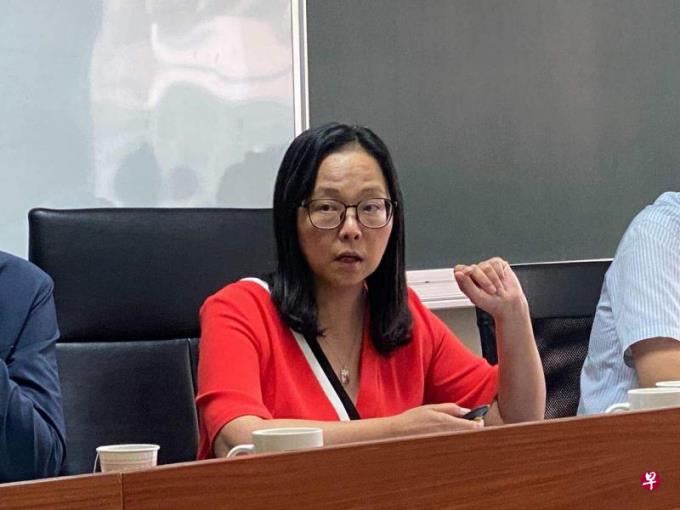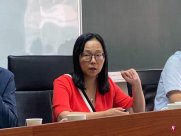
For the continuous heating up in the Sino -US scientific and technological war, Zhu Mingqin, a Taiwanese scholar who has long been concerned about chip strategic topics for a long time, analyzed on Friday (August 18) that the United States currently focuses on limiting the advanced process chip of mainland China.It is a mature process chip that is generally used in military use, but this will also trigger a rebound in the US business community.
The United States has launched the chip bill at the end of its anniversary. The US President Bai Deng signed an administrative order again on Wednesday (August 9) to restrict US venture capital and private equity funds investing in semiconductors, quantum computing and artificial intelligence (AI) to China.EssenceThis ban is expected to take effect next year.
Radio Free Asia cited US officials at the time that the purpose of this ban was to solve the "worst national security risk" and avoid US funds and professionalism to help Chinese military modernization.
Zhu Mingqin currently serves as an assistant professor at the Department of Political and International Relations of the University of Southampton, England.She has been paying attention to the development and policies of Sino -US semiconductors for a long time, and in 2004, 2005, 2009, and 2022, she visited officials, important military industry and semiconductor enterprises in the Sino -US defense field.
For the context of the US chip export restrictions on the United States, she pointed out in a special speech at the East Asia Research Institute of Taiwan Politburo on Friday that as early as 2004, when she interviewed with the US Department of Defense officials, the other party admitted that she did not want the United States to do not want the United StatesChip technology is used to help Chinese military development.
In 2005, when she interviewed the senior management of the Chinese semiconductor industry, the other party also mentioned that the development of the chip is very important for the Chinese national defense field.
Zhu Mingqin believes that this means that the origin of the United States restricting the export of Chinese chips is far away, but in recent years, the United States has been afraid of China's rapid rise, and thus strongly sacrifice restrictions.
From the perspective of the ban trend, she believes that at this stage, the United States focuses on restricting the chip products of the advanced process of exports to China (below the seven nanometers), but it is likely to further expand to the mature process (above the seven nanometers) in the future.
Zhu Mingqin pointed out that this is because most of the military chips are mature processes. "Usually a military chip can be placed in a missile system for one or two years, so for the military, it really does not need the most advanced ("Chip)" ".
But she also mentioned that China is a very large chip market after all. If the US company has been unable to sell products to China, the income will really be much reduced, which will also seriously affect the research and development of advanced technology (Research and Development, RD) Resources.
Therefore, Zhu Mingqin believes that if the US official wants to further expand export restrictions to mature process chips, it may face the rebound of the business community.
For whether Chinese chips can achieve independence, Zhu Mingqin said that China's market share in the global semiconductor market has increased from 1%in 1995 to 23%in 2019. The official is indeed betting on a lot of resources.The goal of 70%self -sufficient rate.
But she pointed out that China still faces the dilemma of technological backwardness in chip manufacturing. At present, it can only reach a maximum of 20%of the self -sufficiency rate.
However, Zhu Mingqin believes that even if the key technologies are held by the United States, China's semiconductor development is dominated by the country. If you accelerate the development of research and development and design investment, once alternative technology is developed, there may be an advanced advantage (FIRST MOVER Advantage), This may have the opportunity to "overwhelm the beauty" in the semiconductor field.



